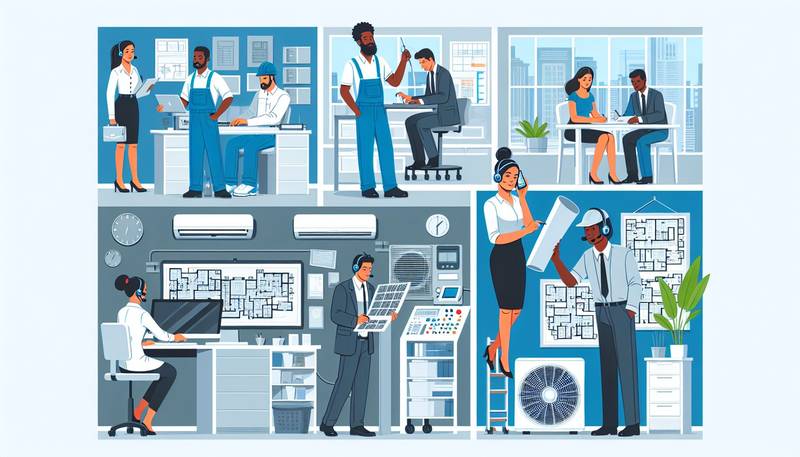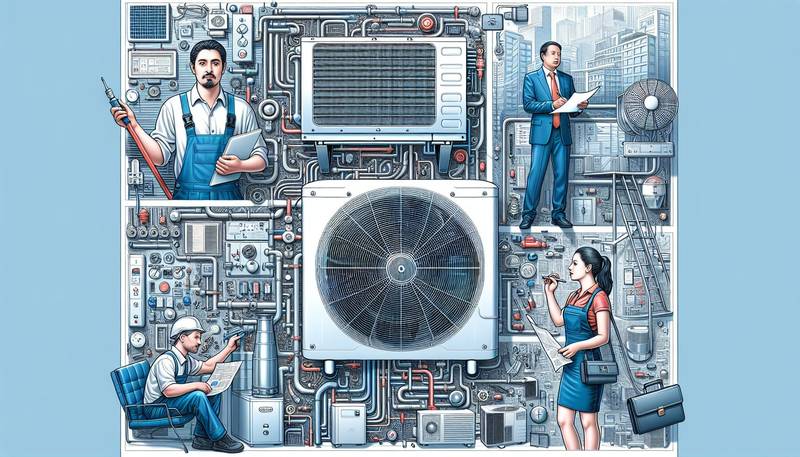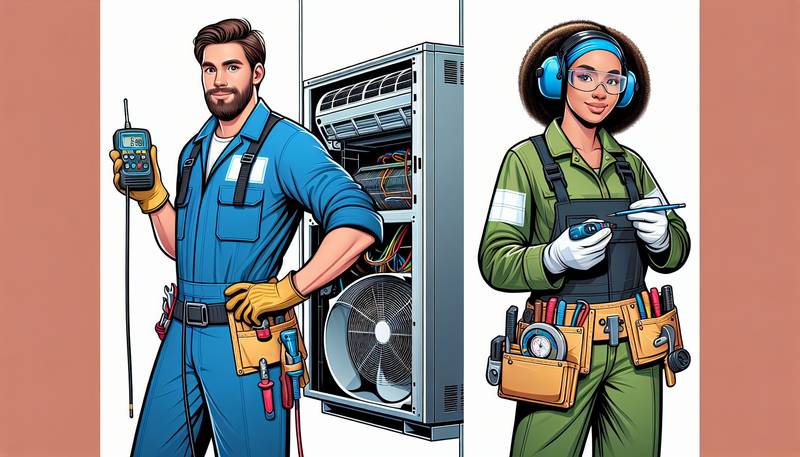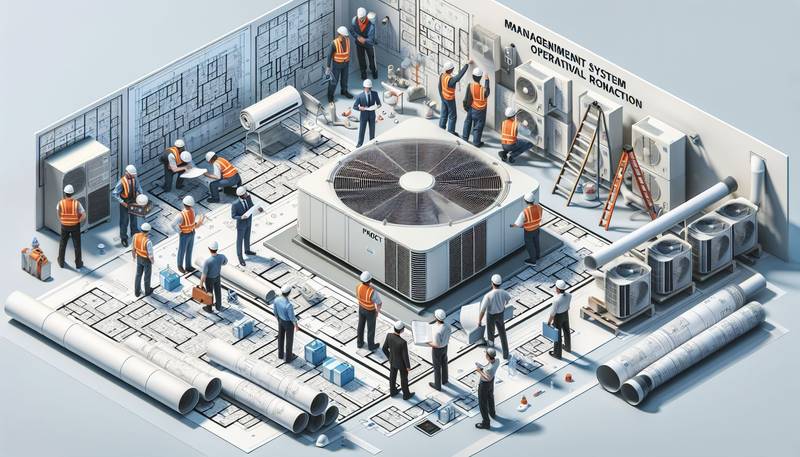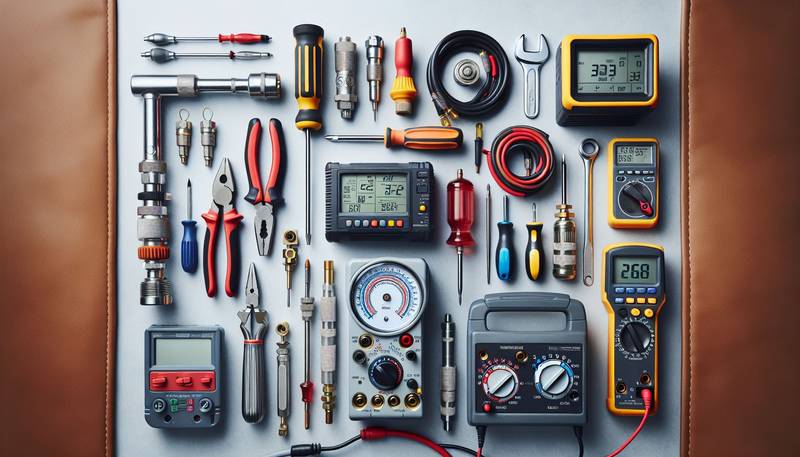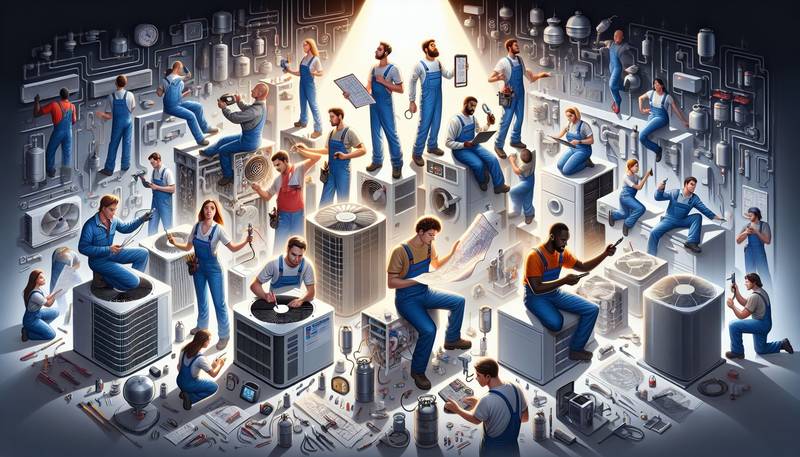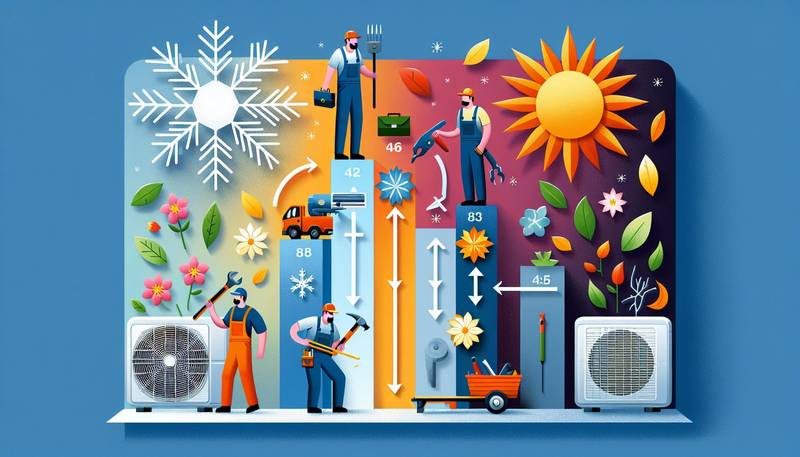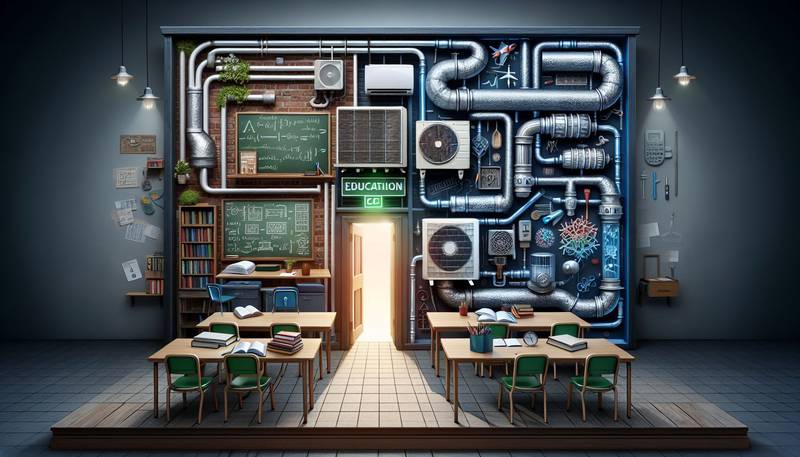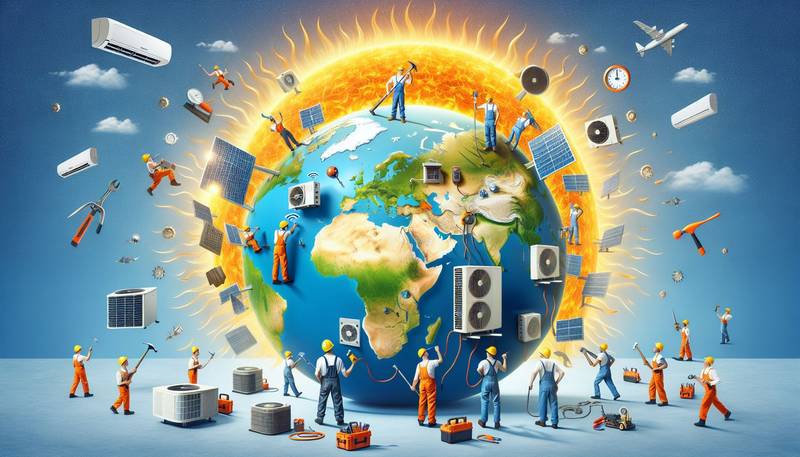Designing Comfort: Engineering Roles in the Air Conditioning Industry
Behind the scenes, there are engineers who work tirelessly to design and develop air conditioning systems that are efficient, reliable, and sustainable. These engineers play crucial roles in the air conditioning industry, working on various aspects of system design, installation, maintenance, and innovation.
The Role of Mechanical Engineers
Mechanical engineers are at the forefront of designing air conditioning systems. They are responsible for creating the overall system layout, selecting appropriate components, and ensuring that the system meets the required specifications. Mechanical engineers work closely with other professionals, such as architects and building owners, to ensure that the system integrates seamlessly with the building's design and functions efficiently.
The Role of HVAC Engineers
Heating, Ventilation, and Air Conditioning (HVAC) engineers specialize in designing systems that control indoor air quality and temperature. They work on developing heating and cooling systems that are energy-efficient, cost-effective, and environmentally friendly. HVAC engineers also focus on ensuring proper ventilation and air circulation within a building to maintain a healthy indoor environment.
The Role of Electrical Engineers
Electrical engineers play a crucial role in designing the electrical components of air conditioning systems. They are responsible for selecting and integrating electrical components such as motors, sensors, and controllers. Electrical engineers work on optimizing the electrical design to ensure efficient operation and safety of the system. They also play a key role in designing control systems that regulate the operation of the air conditioning system based on temperature, humidity, and other factors.
The Role of Controls Engineers
Controls engineers specialize in developing the software and hardware components that control and monitor air conditioning systems. They work on designing control algorithms, developing user interfaces, and integrating sensors and actuators to automate the operation of the system. Controls engineers play a critical role in ensuring that the air conditioning system operates smoothly, efficiently, and reliably.
The Role of Energy Engineers
Energy engineers focus on optimizing the energy efficiency of air conditioning systems. They work on designing systems that minimize energy consumption while maintaining comfort for occupants. Energy engineers analyze energy usage data, conduct energy audits, and propose energy-saving solutions to improve the overall efficiency of air conditioning systems. They also work on incorporating renewable energy sources, such as solar panels and geothermal systems, to reduce the environmental impact of air conditioning systems.
The Role of Sustainability Engineers
Sustainability engineers are responsible for ensuring that air conditioning systems are designed and operated in a sustainable manner. They work on minimizing the environmental impact of air conditioning systems by using eco-friendly refrigerants, reducing greenhouse gas emissions, and promoting energy-saving practices. Sustainability engineers also focus on incorporating green building design principles, such as natural ventilation and passive cooling, to enhance the sustainability of air conditioning systems.
In conclusion, engineers play crucial roles in the air conditioning industry, working on various aspects of system design, installation, maintenance, and innovation. Mechanical engineers, HVAC engineers, electrical engineers, controls engineers, energy engineers, and sustainability engineers collaborate to design and develop air conditioning systems that are efficient, reliable, and sustainable. Their efforts help create comfortable indoor environments that improve the quality of life for occupants while minimizing the environmental impact of air conditioning systems.

